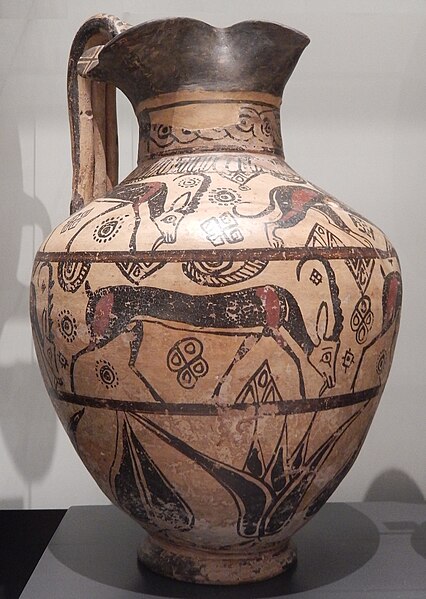Some more amazing tales for a Summer of Wonder.
Paradoxagraphus Florentinus: Mirabilia de Aquis
12 “Among the Kleitorians [Isigonos] says there is a spring and whenever anyone drinks its water, he cannot bear the smell of wine.”
Παρὰ Κλειτορίοις ὁ αὐτός φησιν εἶναι κρήνην, ἧς ὅταν τις τοῦ ὕδατος πίῃ, τοῦ οἴνου τὴν ὀσμὴν οὐ φέρει.
14 “Similarly, near Kosê there is a spring which, if you place a container filled with wine in it until it covers the mouth, then it becomes more bitter than vinegar right away according to the same author.”
῾Ομοίως ἐγγὺς Κόσης ἔστι κρήνη, εἰς ἣν ἐὰν θῇς κεράμιον οἴνου γέμον, ὥστε ὑπερχεῖν τὸ στόμα, παντὸς ὄξους εἶναι δριμύτερον παραχρῆμα, ὡς ἱστορεῖ ὁ αὐτός.
20 “Theopompos says that in Lugkêstai there is a spring which tastes like vinegar but when people drink it they get drunk as if from wine.”
Θεόπομπος ἐν Λυγκήσταις φησὶ πηγὴν εἶναι τῇ μὲν γεύσει ὀξίζουσαν, τοὺς δὲ πίνοντας μεθύσκεσθαι ὡς ἀπὸ οἴνου.
Paradoxographus Palatinus: Admiranda
5“There is a spring among the Kleitori which if someone drinks from he will reject and hate drinking wine”
Τῆς ἐν Κλείτορι κρήνης ἄν τις πίῃ τοῦ ὕδατος, ἀποστρέφεται καὶ μισεῖ τὴν τοῦ οἴνου πόσιν.
7 “In Naxos Aglaosthenês says that wine bubbles up on its own for the earth and when it goes into rivers it does not mix with water. The person who tastes it goes crazy”
Εν Νάξῳ φησὶν ᾿Αγλαοσθένης οἶνον ἐκ τῆς γῆς ἀναβλύζειν αὐτόματον καὶ διὰ ποταμοῦ φερόμενον μὴ συμμίσγεσθαι ὕδατι. τὸν δὲ γευσάμενον αὐτοῦ παραφρονεῖν.







